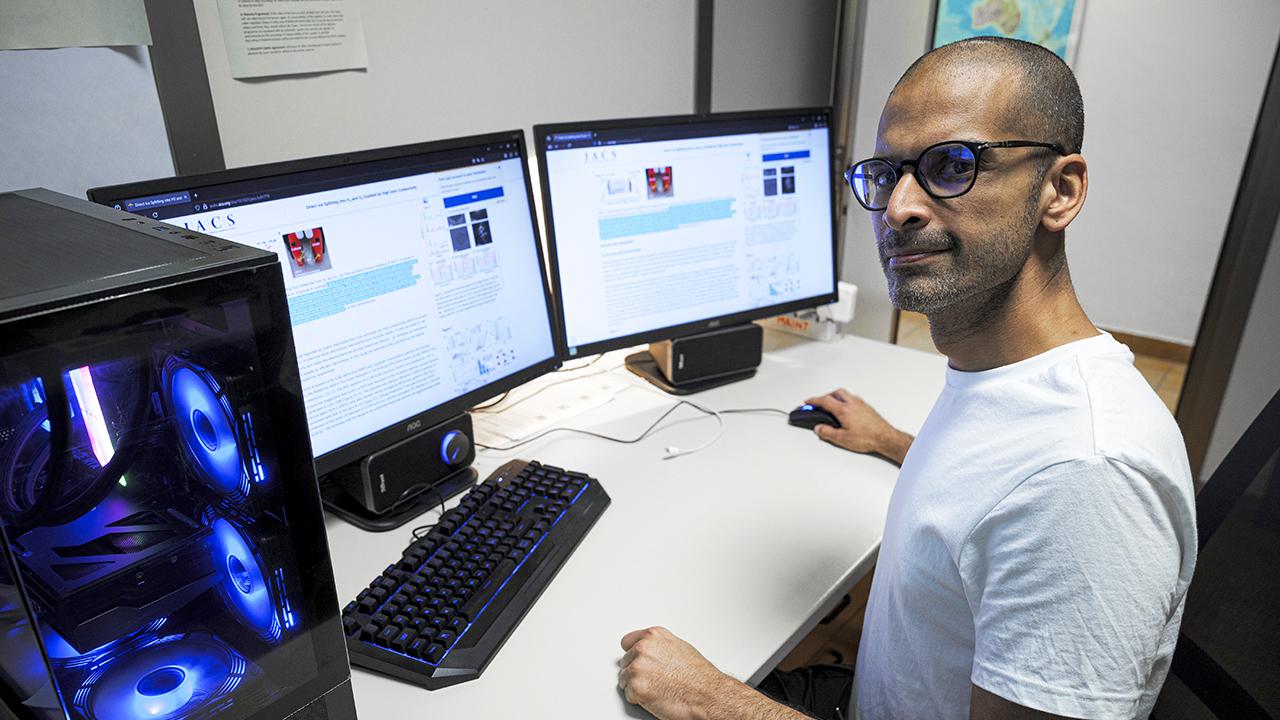
Ali Hassanali, a Senior Research Scientist at the ICTP Condensed Matter and Statistical Physics section has been awarded a Proof of Concept Grant by the European Research Council (ERC) to explore sustainable, skin-safe UV protection using molecules designed with Artificial Intelligence (AI).
The project, CUSHOP (Capturing UV Sunlight Using Hydrogen-Bond Networks: Organic Sun Screens for Skin Protection), will combine generative AI and lab experiments to develop new organic molecules that absorb UVA and UVB rays – the two types of UV light responsible for skin damage. These molecules could be integrated into new sunscreen products, thus addressing rising skin-cancer rates and the growing concerns about the harmful impact of current sunscreens ingredients on marine ecosystems.
The project will build on the ground-breaking knowledge and expertise recently developed by Hassanali and his group at ICTP as part of the ongoing ERC-funded, five-year project HyBOP (Hydrogen-Bond Networks as Optical Probes). In the years since its launch in 2022, the project has explored how organic molecules – particularly hydrogen-bonded systems – interact with light. The researchers’ deeper understanding of the molecular characteristics involved in UVA and UVB light absorption will be key in the search for new sun-shielding molecules.
The funding will support two post-doctoral positions at ICTP and reinforce the Centre’s in-house computer resources. The in-silico design of macromolecules using generative models will be carried out in close collaboration with AI experts from the Laboratory of Data Engineering of Area Science Park, coordinated by Alberto Cazzaniga. The group will also work in collaboration with Silvia Marchesan and her team at the University of Trieste to synthesise the AI-designed molecules and test their performance when integrated into sunscreen products. The expertise of a consultant from the skin-cosmetics industry will help explore the possible commercialisation of the result. Other institutions in the science and innovation system of the Trieste region, including SISSA, will be involved at different stages of the project.
“This project is an exciting step towards bridging fundamental science and real-world impact. We hope to develop safer, more sustainable ways to protect skin from harmful UV radiation, while reducing the environmental impact of sunscreen products. Special thanks to my current team at the ICTP who have been essential driving forces for enabling this,” said Hassanali.
Hassanali’s CUSHOP is one of the 150 projects selected in 2025 by the ERC as part of their Proof of Concept Grants scheme, which supports ERC grantees in the early phases of the commercialisation or societal application of their pioneering research.
















